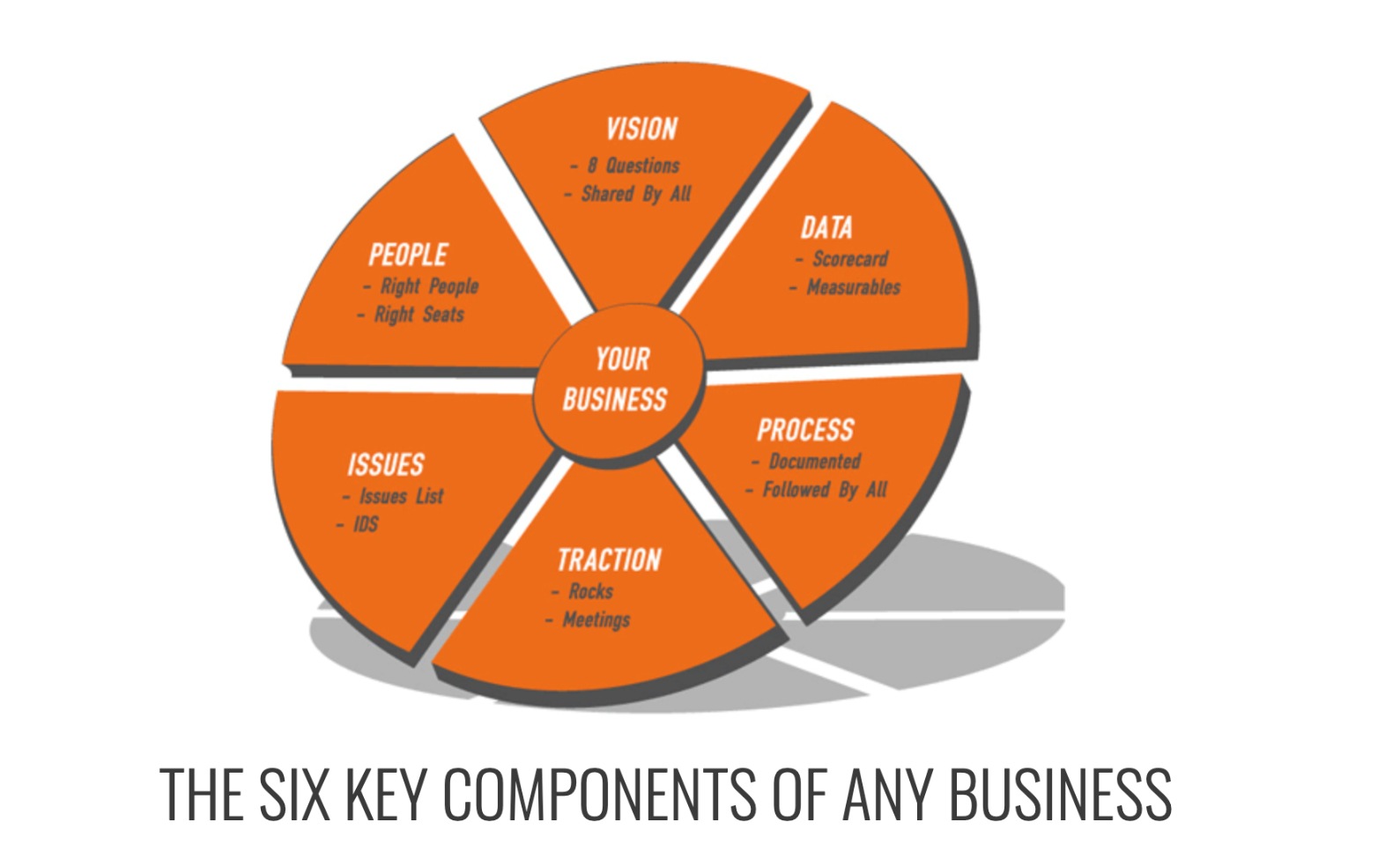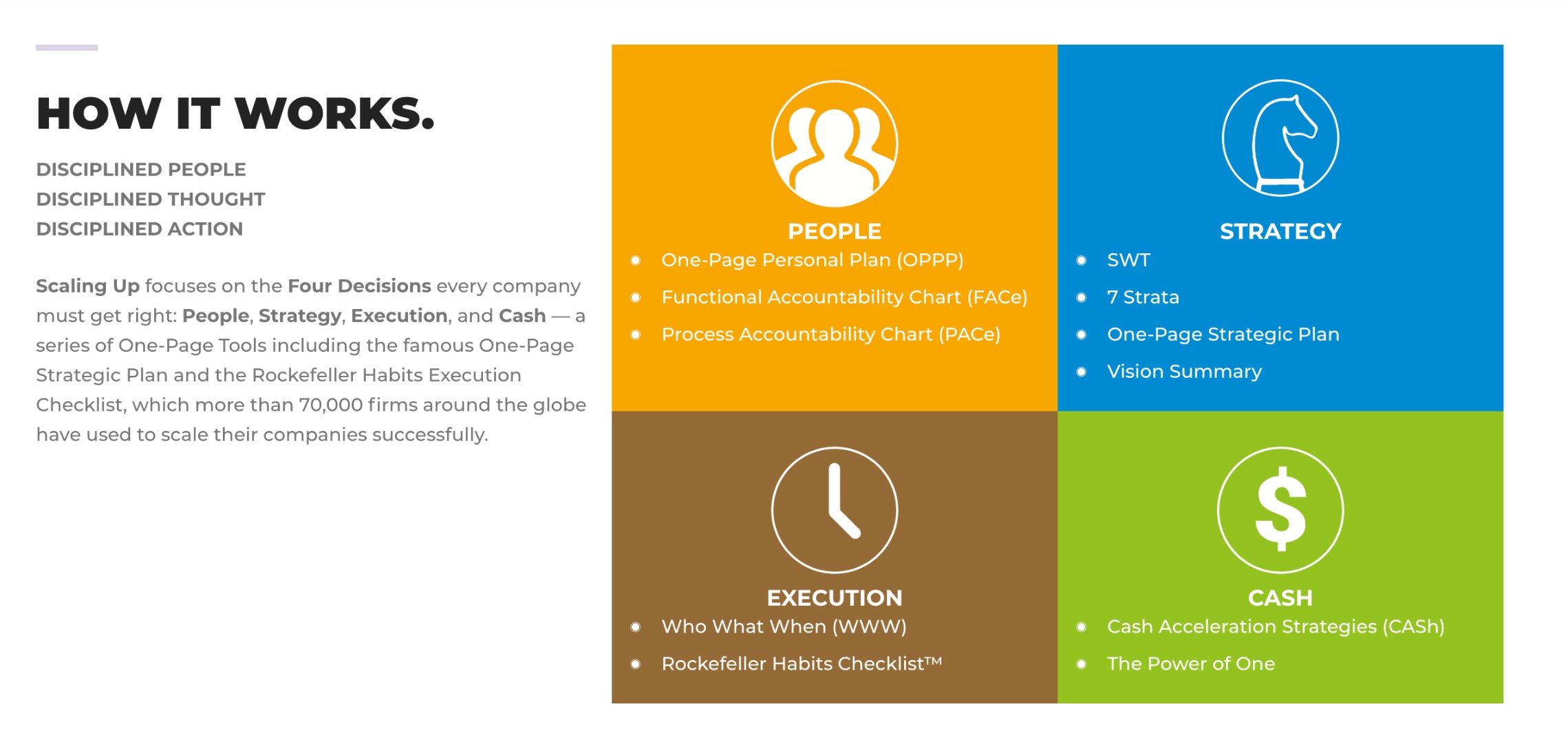Subscribe now and get the latest podcast releases delivered straight to your inbox.
[For Test Blog] How does They Ask, You Answer compare to EOS and Scaling Up? (Clone)

By John Becker
Jun 7, 2021
![[For Test Blog] How does They Ask, You Answer compare to EOS and Scaling Up? (Clone)](https://www.impactplus.com/hs-fs/hubfs/EOS-six-components-of-any-business.jpg?width=768&height=400&name=EOS-six-components-of-any-business.jpg)
It’s a simple truth proven time and time again: the businesses that follow proven growth philosophies are the businesses that get ahead.
Sooner or later, every business owner encounters a situation that requires outside guidance and insight to navigate. It’s important for business leaders to know that whatever they’re facing, others have faced something similar before — and learning from others’ experiences allows you to chart a course when the path seems uncertain.
For many professionals, EOS and Scaling Up are respected business philosophies that offer structured advice for growth and business management.
However, as great as EOS and Scaling Up are, they don’t provide specifics when it comes to day-to-day improvement in your digital sales and marketing efforts. You’ll need to look elsewhere for that.
Here at IMPACT, we offer our own proven business philosophy called They Ask, You Answer, which charges organizations to reorient their sales and marketing by obsessing over their customers’ questions, fears, concerns, and issues.
They Ask, You Answer offers highly tactical plans and strategies for attracting customers and growing your business.
For organizations deciding between EOS and Scaling Up, They Ask, You Answer can offer a complementary pathway to growth that can start yielding results immediately.
The EOS model vs. Scaling Up
EOS (short for Entrepreneurial Operating System) is a set of business practices and tools created by Gino Wickman, author of Traction: Get a Grip on Your Business. The EOS principles require businesses to develop a shared vision around common goals, core values, and company culture.

Courtesy of EOS
Businesses work with a coach or on their own to find alignment, set priorities, and move forward, meeting regularly to chart progress and results.
Scaling Up grew out of the 2002 book Mastering the Rockefeller Habits by Verne Harnish (later updated and renamed Scaling Up).
The Scaling Up philosophy asks a business to designate a long-term goal (called a BHAG, or “big, hairy audacious goal”) that it hopes to accomplish in 10-25 years. Then, leaders plan backward, building smaller goals, priorities, and objectives to help move them toward the larger goal. 
Courtesy of Scaling Up
Businesses find alignment around a concise one-page strategic plan, and use this harmony to accomplish the small steps that lead to the end goal.
In comparison
While both systems have similarities — and thousands of case studies to back up their effectiveness, they each have their merits and drawbacks, too. Of the two, Scaling Up is seen as more involved, more long-term, and more detailed. EOS is more accessible, more generalized, but requires clients to only use EOS tools.
What these systems won’t help you do
Although both EOS and Scaling Up offer practical and effective tools and techniques for running your business, aligning your workers, and planning your future, you won’t find tactical advice for perfecting and optimizing your sales and marketing.
A business leader could follow EOS or Scaling Up and have an excellent business plan and vision, but they could lack strong marketing performance and stall in their growth.
Inherently, these philosophies are incomplete if you’re looking to grow your business. As such, the question isn’t just about whether you should choose EOS or Scaling Up — it’s about what you should pair either one with to offer your business the most lucrative and dependable path forward.
What is They Ask, You Answer?
They Ask, You Answer is a business philosophy also supported by thousands of case studies and grown from the real experience of saving a business from the brink of closure.
Author and speaker Marcus Sheridan used his own experience as a business owner to build an inbound marketing framework that stresses customer education, sales and marketing alignment, and market awareness.
The philosophy boils down to this belief: If your customers are asking a question, you should answer it openly and honestly on your website. As simple as it sounds, many businesses are hesitant to do so.
All too often, customers most want to know the very things businesses are most reluctant to tell them. For example:
- Customers want to know what your service will cost, and what factors might drive that price up or down.
- Customers want to know what the potential problems are with your product.
- Customers want to know how one competitor stacks up against another.
When customers see you as an educational resource, they trust your business and are more likely to buy from you.
Your customers don’t want to be sold. They want to be educated. They Ask, You Answer helps you strategically create content to educate your buyers.
Organic traffic and assignment selling
Educational content draws traffic. Customers in the awareness or consideration stages of the buyer’s journey are actively seeking out answers to their questions. As they move closer to making a purchase decision, the need only increases.
But They Ask, You Answer helps you in the immediate term as well. Your company’s sales reps are able to use the content you produce in the sales process. Having heard so many customer questions before, they can anticipate what a prospect might be concerned about and share content to explain details or answer questions as necessary.
This practice, known as assignment selling, helps shorten the sales cycle and weed out bad-fit prospects.
They Ask, You Answer and your business
Over the past number of years, They Ask, You Answer has been vetted, improved, and broadened into a business philosophy embraced by SMBs from scores of industries.
They Ask, You Answer is not built on abstract principles and ideas. Instead, it focuses on proven tactics that can be implemented immediately:
- Here are the five topics you need to cover in your content first
- Here are the seven types of sales videos you need to make
- Here’s how to leverage content in the sales process
- Here’s how to optimize your content for search
- Here’s how you should build your internal marketing team (and why you need to)
Your sales and marketing efforts must always come back to your customer. When you fixate on your customers’ concerns, questions, fears, and hopes, and when you strive to be the most trusted educational resource in your industry, you attract the best prospects and leads.
They Ask, You Answer will help you optimize your digital sales and marketing to attract the modern buyer who is tech-savvy and inclined to do thorough online research before making a sales appointment or a purchase decision. What's more, it will align your sales, marketing, and leadership teams around a common revenue goal.
At IMPACT, we offer exclusive They Ask, You Answer coaching and training services that are tailored to your needs and focused on your mastery. We train you to develop the skills to no longer need a marketing agency.
The importance of a coach
Whether you implement EOS, Scaling Up, or They Ask, You Answer, you shouldn’t go it alone. Talk to an expert who can help you.
Anyone seeking to follow a growth strategy should use an outside coach. Someone with an outside perspective will be able to identify blind spots and hold you accountable for the various metrics that measure your progression.
At IMPACT, we work with a Scaling Up coach from Petra Coach — and at the same time, we coach others (and our internal staff) in implementing They Ask, You Answer.
For companies looking to grow properly, hiring a coach is a wise investment. IMPACT’s Founder and CEO Bob Ruffolo puts it this way:
“In any of these models, you can go and buy the book, read it all the way through, and self-implement — and there are a lot of companies that can do that successfully. However, we’ve found that the great majority of companies don’t do it as successfully or as quickly as they want to when they self-implement.”
Putting it all together
If you’re a business leader looking at implementing Scaling Up or EOS, you’re already in a great position. Simply seeking out these highly regarded programs indicates that you obsess over learning and want to be the best at what you do.
What’s more, you know the value of learning from others who have gone before you. There’s no need to completely reinvent the wheel. Instead, take the wheels that others have made and tweak them to fit your needs.
The fact is, many of our most successful clients at IMPACT are using Scaling Up or EOS in addition to They Ask, You Answer.
These companies find that the philosophies complement each other, with one governing their general business goals, strategic vision, and company culture, while They Ask, You Answer helps them develop effective sales and marketing strategies.
Here at IMPACT, we “drink our own champagne” and use They Ask, You Answer as a guiding sales and marketing philosophy. We also follow Scaling Up. We find that the two systems integrate perfectly.
We are able to align with a shared vocabulary, a unified strategic vision, and a growth plan built upon the experiences of hundreds of other companies.
If you’re serious about your business’ growth, add They Ask, You Answer to your strategy so that your sales and marketing can keep up with the organizational progress you get from EOS or Scaling Up.
When you’re ready to take that step, IMPACT can help you.


Order Your Copy of Marcus Sheridan's New Book — Endless Customers!